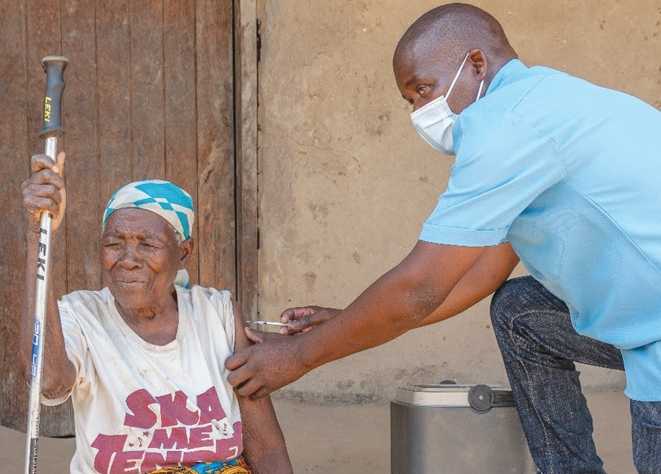Covid-19 vaccines uptake worries ministry, health activists
Ministry of Health and health rights activists have expressed worry over the low uptake of Covid-19 vaccines in the country, with just 908 688 people fully vaccinated so far, against a population of 18 million people.
However, Covid-19 vaccines serve to protect people from getting seriously ill, being hospitalised or dying.

The vaccines also enhances protection when one receives a booster.
In an interview, Ministry of Health spokesperson Adrian Chikumbe was concerned that despite the availability of Covid-19 vaccines in the health facilities, the uptake figures are not that impressive compared to how it was in November and December when the first phase of the Covid-19 vaccination express campaign was launched.
“We relaunched the campaign in February after poor performance in January, but still the uptake has not been that impressive.
“Now we have introduced the booster dose and not many people have come for it—less than a thousand people have taken the booster dose. We expected all those that were fully vaccinated to now rush for the booster dose,” he said.
Chikumbe is worried that as some of the vaccines are donations, the low uptake might not give a good impression to those that gave the vaccines to Malawi if they expired because people are not taking them.
According to World Health Organisation (WHO) website, the country has now received 4 449 720 Covid-19 vaccine doses; 55 percent of which were from the Covax Facility, 16 percent from the African Vaccine Acquisition Trust and 29 percent from bilateral deals and donations.
“These vaccines are very expensive, costing about $35 [about K29 000] per dose, and if we have to destroy some of them because we did not use them, we might look like we are not grateful.
“We have not reached a million for those who are fully vaccinated and that is a cause for worry,” Chikumbe said, adding that some of the vaccines currently in stock may expire by May, and others by June this year if uptake does not improve.
Equally, health rights activist George Jobe shared the ministry’s fears on the low uptake of Covid-19 vaccine in a written response.
He said: “It is likely that people have relaxed because Covid-19 cases and deaths have drastically reduced, thereby creating a perception in people that it is gone.
“This is dangerous. Only about one million people [about five percent] are fully vaccinated and yet Malawi targeted 60 percent of the population [around 11 million] and only 1000 have taken a booster jab. So, we are still worried on vaccines coverage.”
Jobe urged people to remember that Covid-19 has been coming in waves, and that with the low vaccine coverage, it means that Malawi has not built herd-immunity which can enable it to withstand possible Covid-19 waves.
Jobe also highlighted the need to ensure that none of the vaccines the country has expire and that people should take them and avoid panicking and scrambling for vaccines in case another Covid-19 wave hits.
The health rights activist further called on the Ministry of Health to continue the door-to-door vaccination strategy so that more people can receive the vaccines.
According to WHO, Malawi is among the nine countries in Africa with less than five percent vaccine coverage, including Mali, Nigeria, South Sudan, Burundi, Cameroon, and the Democratic Republic of Congo,among others, while Mauritius and Seychelles have gone beyond 70 percent coverage.
WHO further estimates that about 4.6 million vaccines have expired in 31 African countries, which accounts for 0.6 percent of all vaccines received in Africa.
Further estimates indicate that 2.4 million doses are at risk of expiry in 15 countries before the end of April 2022.
Among other things hampering vaccine uptake according to WHO, are misinformation about vaccines, vaccine hesitancy, insufficient funds arising from under-budgeting during national vaccine deployment planning, and poor data management, among others.






One Comment